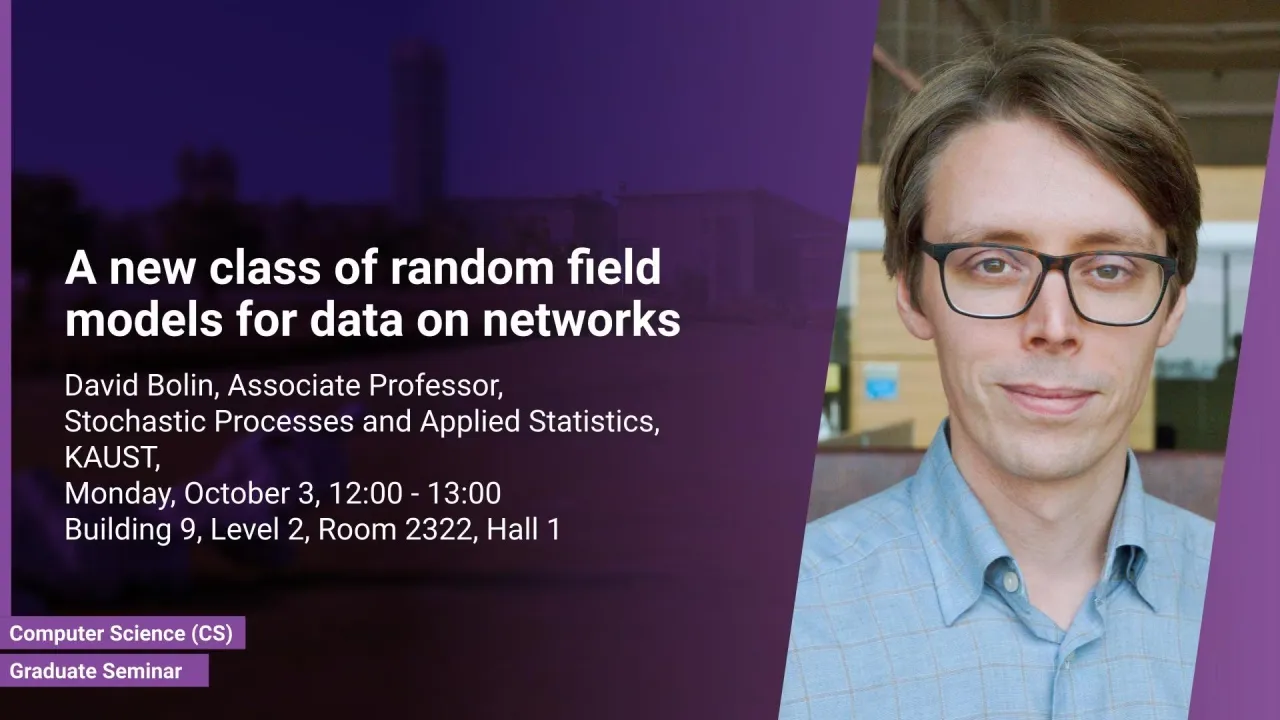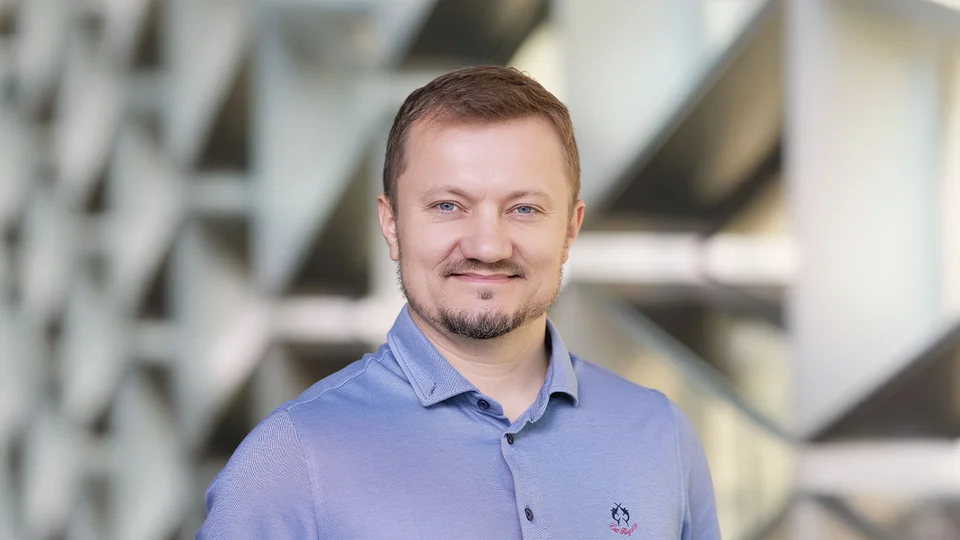
A new class of random field models for data on networks
B9 L2 R2322 H1
Random fields are popular models in statistics and machine learning for spatially dependent data on Euclidian domains. However, in many applications, data is observed on non-Euclidian domains such as street networks. In this case, it is much more difficult to construct valid random field models. In this talk, we discuss some recent approaches to modeling data in this setting, and in particular define a new class of Gaussian processes on compact metric graphs.
Overview
Abstract
Random fields are popular models in statistics and machine learning for spatially dependent data on Euclidian domains. However, in many applications, data is observed on non-Euclidian domains such as street networks. In this case, it is much more difficult to construct valid random field models. In this talk, we discuss some recent approaches to modeling data in this setting, and in particular define a new class of Gaussian processes on compact metric graphs. The proposed models, the Whittle-Matérn fields, are defined via a fractional stochastic partial differential equation on the compact metric graph and are a natural extension of Gaussian fields with Matérn covariance functions on Euclidean domains to the non-Euclidean metric graph setting. We discuss various properties of the models, and show how to use them for statistical inference. Finally, we illustrate the model via an application to modeling of traffic data.
Brief Biography
David Bolin is an Associate Professor of statistics in the CEMSE Division at KAUST. He is leading the research group Stochastic Processes and Applied Statistics, which focuses on statistical methodology for stochastic processes and random fields based on stochastic partial differential equations. David Bolin received his Ph.D. degree in mathematical statistics from Lund University in 2012. Before moving to KAUST, he was an Associate Professor in mathematical statistics at the University of Gothenburg. He was awarded with the Cramér price in 2013, is an elected member of the International Statistical Institute (ISI) since 2020, and received the Early Investigator Award by the Section of Statistics and the Environment of the American Statistical Association in 2022.

